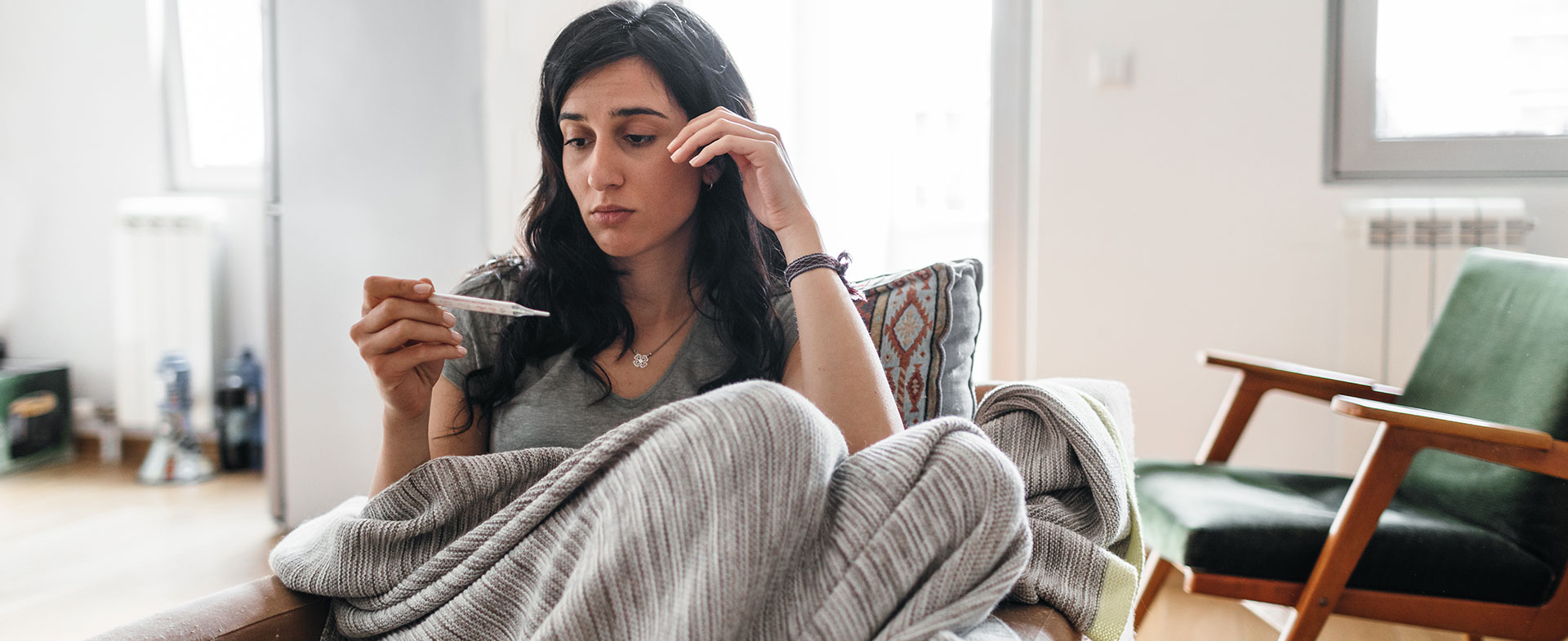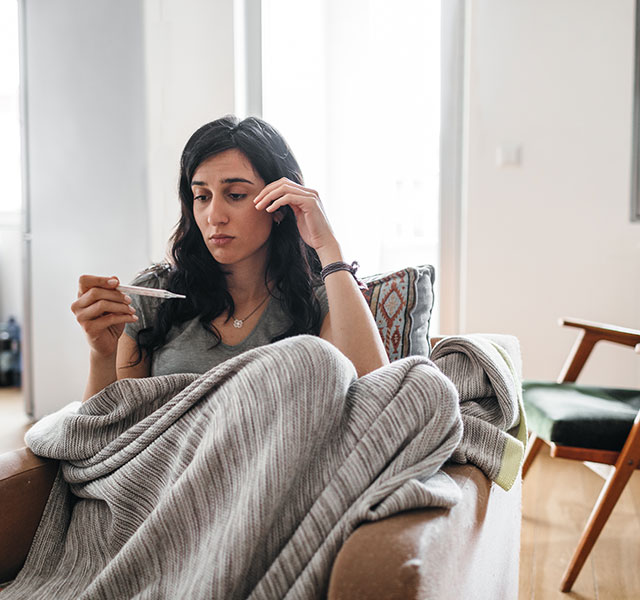If you have a mild to moderate case of COVID-19 (meaning you don’t have shortness of breath or severe symptoms that require hospitalization) it’s best to nurse yourself back to health at home. And since you must isolate, it’s a good idea to think ahead and stock your medicine cabinet with a few essentials that will aid recovery, should you contract the virus. Here, Eunice Yu, M.D., medical director of COVID-19 Recovery Care at Henry Ford Health, shares what to have on hand.
- At-home COVID-19 test kits. The government is giving out four free at-home tests to every household. You can sign up to receive one here. While they’re not 100% accurate, they can help. “And if you’re pretty sure you have COVID-19 but you receive a negative at-home test result, take a PCR test,” says Dr. Yu. “Documentation of a positive test is important because if you experience long-haul symptoms, having a positive test result can help get you access to certain kinds of care down the road.”
- A pulse oximeter. “A pulse oximeter measures your pulse rate and the amount of oxygen in your blood,” says Dr. Yu. “When you’re not feeling well, your heart rate tends to be a little higher, but if you have a resting heart rate that’s persistently above 100 beats per minute or a blood oxygen level below 92%, you should contact your doctor.” You can buy a pulse oximeter at pharmacies such as CVS and Rite Aid. (And at home, you can try increasing your oxygenation by laying on your stomach for a little while to see if it helps you breathe more easily, says Dr. Yu.)
- Acetaminophen or ibuprofen. To reduce fevers, aches and pains, you can take acetaminophen (Tylenol) or ibuprofen (Motrin). Follow the instructions on the label and don’t take more than the recommended amount. “If you feel like you have to take it every day for more than a week, check in with your doctor,” says Dr. Yu.
- A thermometer. If you don’t already have a thermometer at home, here is your reminder to grab one. Keeping track of your temperature is important—if you have a fever above 101 degrees Fahrenheit for multiple days in a row, it’s a good idea to check in with your doctor, says Dr. Yu.
- Lots of fluids. “Broth, popsicles, diluted fruit juices, electrolyte solutions like Gatorade—these are all good to have on hand to avoid dehydration,” says Dr. Yu. “Ideally you want lots of water, but if you’re not eating well, having a bit of salt and sugar in your fluids will help you to better absorb the water. Drink enough so that your urine is coming out a light yellow.”
- A notebook. Write down your symptoms each day to see if you're improving. Five days after the onset of your symptoms, if you are fever free for 24 hours and your other symptoms are improving, according to the CDC, you can stop isolating, although you should still wear a well-fitting mask around others. “If it has been five days and you still have a fever, however, you should continue to isolate until you are fever free for at least 24 hours and your other symptoms are improving," says Dr. Yu. "You should still take precautions for at least 10 days after symptoms by wearing a mask and avoiding high-risk individuals.” And if you have any questions along the way? It’s always best to get personalized advice from your doctor.
Subscribe to receive a weekly email of our latest articles.
For more information about COVID-19 testing, visit henryford.com/testing.
Henry Ford offers COVID-19 vaccines and boosters to established patients. Appointments can be scheduled in MyChart. For updates on booster guidelines and availability of vaccines by age group, visit henryford.com/coronavirus/vaccine-faqs.
Eunice Yu, M.D., is an internal medicine specialist and the medical director of COVID-19 Recovery Care at Henry Ford Health. She sees patients at Henry Ford Medical Center — Ford Road in Dearborn.



